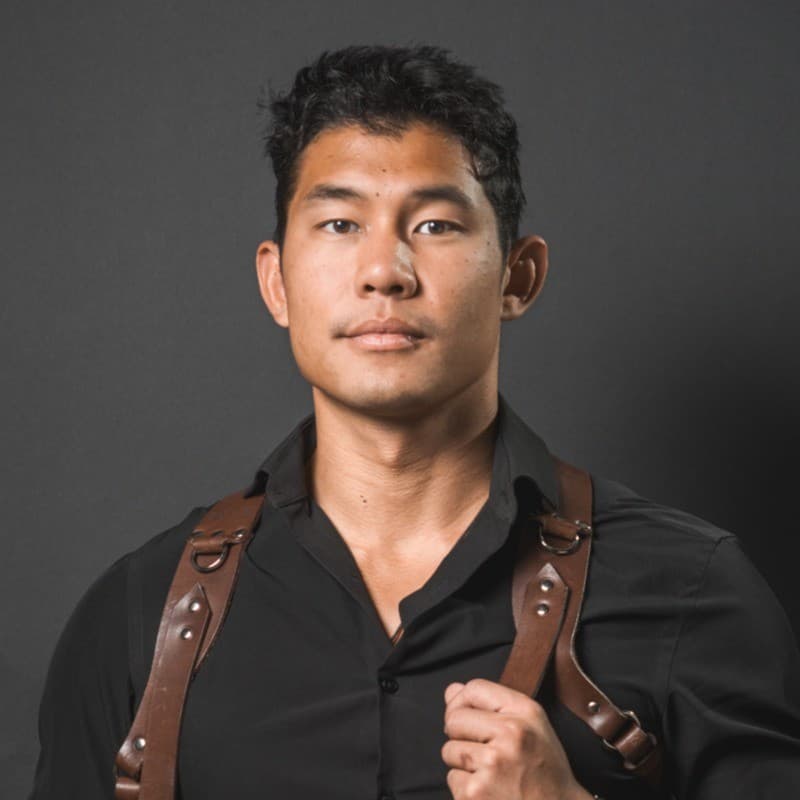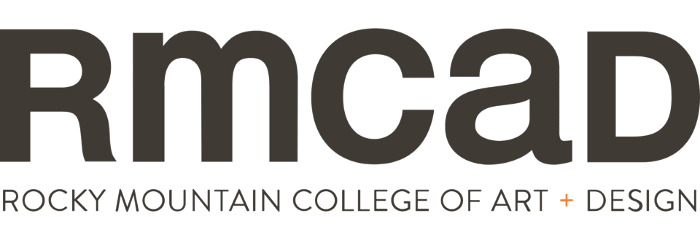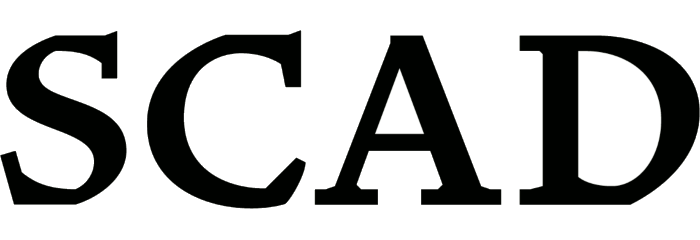Best Online Photography Degrees
Our list of the best online photography degree programs at the bachelor's level highlights accredited schools ranked by the highest online enrollment at the undergraduate level.
Key Takeaways:
- At #1, Southern New Hampshire University Online leads with an enrollment of 154,212, ranking at the very top nationwide.
- Sessions College for Professional Design reports a perfect 100% retention rate, indicating exceptional student satisfaction and support.
- Arizona State University Online's photography graduates report median earnings of $57,315 (top 28% nationally in this field), just four years after graduation.
Read our methodology for more information about our rankings. We also interviewed Sam Savat, a wedding photographer, who shared candid advice on portfolio development, business strategy, and why success in photography depends largely on creative skill, marketing savvy, and mentorship.
List Of Accredited Online Photography Schools
| School | Online Enrollment | Annual Tuition |
|---|---|---|
| Southern New Hampshire University Online | $9,900 | |
| Arizona State University, Online | 52,896 | $24,780 |
| Liberty University | 39,168 | $11,700 |
| Thomas Edison State University | 6,686 | $8,856 |
| Academy of Art University | 2,238 | $35,112 |
| Rocky Mountain College of Art and Design | 1,399 | $22,200 |
| Savannah College of Art and Design | 1,119 | $41,130 |
| Sessions College for Professional Design | 154 | $12,440 |
Best Online Photography Degrees
- Online Enrollment: 154,212 enrolled
- Annual Tuition: $9,900
- Location: Manchester (NH)
Why we like them: Ranked #1 for having the best online photography degree, SNHU’s online enrollment of 154,000+ places it at the top nationwide among online students. We appreciate its career-centered design — brand-building, contracts, pricing, and client management — so you can develop entrepreneurial confidence alongside mastery of camera operations, lighting, and post-production.
- Online Enrollment: 52,896 enrolled
- Annual Tuition: $24,780
- Locations: Tempe (AZ) (and 4 others)
Why we like them: At #2, ASU enrolls 52,000+ online learners, which also places it at the very top for online enrollment nationally. And it does this while maintaining its student recommendation rate of 93% based on over 1,5000 reviews we've collected. ASU’s online BFA in digital photography emphasizes conceptual thinking, visual storytelling, and artistic critique rather than purely commercial photography.
- Online Enrollment: 39,168 enrolled
- Annual Tuition: $11,700
- Location: Lynchburg (VA)
Why we like them: Liberty's online degree has both a practicum and an internship so you can build a market-ready portfolio. This bachelor's program uniquely merges photography with visual communication and design theory, preparing students for creative careers in media, marketing, and the arts. It's rooted in a Christian worldview.
- Online Enrollment: 6,686 enrolled
- Annual Tuition: $8,856
- Location: Trenton (NJ)
Why we like them: TESU's online B.A. in Photography includes technical training within a liberal arts framework. There's quite a span from traditional techniques to the digital darkroom, and this is paired with discussions around photography’s cultural and economic roles to help you think critically about markets, audiences, and meaning while you refine skills in the craft.
- Online Enrollment: 2,238 enrolled
- Annual Tuition: $35,112
- Location: San Francisco (CA)
Why we like them: AAU foregrounds portfolio evidence and real-time guidance by having you interact with a curated, video-forward gallery of student work and an alumni carousel that spotlights outcomes, giving you quality benchmarks as you shape your own portfolio. AAU even has an embedded virtual assistant, Arty, which provides immediate answers as you navigate requirements, timelines, and next steps.
- Online Enrollment: 1,399 enrolled
- Annual Tuition: $22,200
- Location: Lakewood (CO)
Why we like them: RMCAD stands out for staged portfolio reviews at the Sophomore, Junior, and Senior levels, giving you an uncommon, iterative checkpoint system that aligns your work with professional standards throughout the degree process. There's also explicit training on AI-powered photographic tools.
- Online Enrollment: 1,119 enrolled
- Annual Tuition: $41,130
- Location: Savannah (GA)
Why we like them: SCAD's photography bachelor's online has a built-in business spine within the major, and it includes fine art, commercial, and documentary photography within one creative ecosystem. Unlike most programs, SCAD trains students across the entire spectrum of photography, from analog and historic processes to next-generation digital tools and visual storytelling.
- Online Enrollment: 154 enrolled
- Annual Tuition: $12,440
- Location: Tempe (AZ)
Why we like them: Sessions College may come in last for online enrollment overall, but it has the best retention rate (100%!) and the lowest student-to-faculty ratio (11:1) on our entire list. This online BFA in photography is an instructor-led model that guarantees 1:1 feedback on every project, so you receive detailed critique.
From Passion to Profit: How Sam Savat Built a Six-Figure Photography Business

Award-winning Photographer
"My name is Sam Savat and I'm a wedding photographer who's been doing this for 5+ years. I've traveled to 9 countries and 14 states just for client work, and made about half a million dollars in revenue.
For online graduates ... if you didn't do so well in school, it's not a big deal because portfolio is EVERYTHING. If you don't show that you have 'it,' your degree won't amount to anything.
Don't simply rely on just your degree, you have to put in work and start building a real world portfolio that shows the type of photography you want to specialize in.
As far as traits goes, in wedding photography, the ability to read the room is one of the most important qualities to have. You do not have to be overly friendly to make it. There are different type of clients for different types of photographers but you have to know how your actions affect the couples'/guests' experience.
That being said, weddings are simply not for everyone. I'd suggest you try every type of photography out there and see what sticks to you. For me, I lost a really good friend and we simply didn't have any photos together at all and that's why I resonated with capturing people's emotions and milestone moments.
Your business knowledge is EXTREMELY important. People can't hire you if they don't know you exist. You can be the most talented photographer but if you make it impossible to work with you, they will find someone else, and trust me they will. The barriers of entry in this industry are so low (because of affordable professional cameras) that having good work is not enough, it's just a requirement to get your foot in the door. The rest is marketing and sales."
EXPERT TIP
"If you really want to make it, start your own business and get a mentor, they will accelerate your growth exponentially."
FAQs About Online Photography Degree Programs
What Does a Photography Degree Entail?
An online photography degree offers a unique combination of technical skills and creative exploration, helping you build your visual storytelling abilities. This flexible program allows you to progress at your own pace while mastering various photography genres and techniques.
Technology and the internet have made it possible to learn any number of trades and skills entirely online, and that includes the art of photography. Not only can an online photography degree teach you how to use shade, lighting, and scenery to create the perfect photos, but it can introduce you to the business side of the industry and show you how to actually make a living doing something you love.
Before you pursue an online photography degree, you should make sure you understand everything that goes into this program at the bachelor's level. Explore our rankings list above to learn about colleges with photography majors, and continue reading on to learn what this program entails and the photography jobs you can pursue after you graduate.
Photography degree programs help students harness their creativity and technical ability in order to create beautiful or necessary photographs for any number of industries. For example, a student pursuing an online photography degree will need to learn how to capture elegant portraits as well as pictures or images of inanimate objects and landscapes. Students also need to understand the role of lighting, composition, shape, shadow, negative space, and background so they can use the factors to create photographs that inspire.
Generally speaking, a bachelor's degree in photography requires four years of full-time study if no transfer credit applies. Students may be able to transfer credits from previous degree programs, and many programs in this realm do not require a minimum SAT or ACT score to apply.
Why Is Accreditation Important for Online Photography Degrees?
The best photography schools online are all fully accredited, so you can rest assured that your school offers the most effective instruction and training money can buy. This goes for both traditional photography programs and degrees from photography schools online.
Making sure your school is fully accredited is the best and only way to ensure your online degree will be respected. The field of photography does not have a specific accreditation agency, yet the provides a list of accrediting agencies and accredited schools. Fortunately, online colleges with photography majors include a range of fully accredited and highly admired colleges and universities.
Many schools that offer online photography degrees also offer the same degrees and curriculum to their on-campus students. This means that, after you graduate, there will be no discernable difference between your online degree and the degree offered to students who attend photography courses in person.
What Major Goes Well With Photography?
While you can major in photography and earn a degree such as the Bachelor of Arts in Digital Photography, there are other majors that pair well with this industry. For example, you could major in fine arts, photojournalism, visual and performing arts, marketing, or even graphic design.
At the end of the day, your college major should tie in closely with the career you want to pursue after you graduate. This means you'll want to spend some time thinking over your career goals before you settle on a degree program and school.
Still undecided if photography is the right fit for you? There are also art design degrees and journalism degrees that are available 100% online.
What Kinds of Courses Do You Take in a Photography Degree Program Online?
If you decide to major in photography, you can expect to take a wide range of courses that aim to help you level up your skills and qualifications in the industry. You'll also need to learn about the types of equipment relied on in this field, including commercial-grade camera equipment, lighting, photo editing software programs, and more.
Many bachelor's degree programs in photography also require a senior thesis that lets students showcase their portfolio of work, so this is something to look forward to and plan for.
Some of the most common courses required for a photography degree include the following:
- Business of Photography
Many photographers are self-employed; thus, the need for an understanding of photography as a business is high. This course teaches students about the legal components of photography as a business, as well as marketing strategies and what it takes to run a successful photography operation in today's changing world. Topics covered include setting up a private business, how to create and execute contracts, and managing overhead costs.
- Digital Photography
Today's photography industry operates almost entirely online, so the need for digital skills is more important than ever. This course introduces students to digital methods of photographic image-making as well as software programs, like Adobe Photoshop. Students learn the advantages and disadvantages of using a fully digital camera and how to maximize technology to create the best, most advanced images possible.
- Documentary Photography
This course teaches students about the traditional, technical, and historical approaches photographers utilize when using their skills and expertise to create a documentary. For example, different film and lighting techniques will be discussed, and students will study some of the best representations of documentary photography currently available today. This course covers both still photos and videography as well as the various techniques harnessed within each industry.
- History of Photography
Learn the full history of photography from its beginnings in 1839. Find out how photographs were made in the 1800's as well as the historical context of this field and its progress over time. Students also discover many of the world's first photographs while learning how this industry was used to capture some of the most historically significant events of mankind.
- Photography Lighting Basics
Lighting is one of the most important factors utilized to create high-quality and impactful photography, and students in this program need to master its use. This course teaches students how light reacts and reflects during the photographic process and how good lighting can portray different emotions and feelings within a certain image. Topics covered include ambient light versus flash or studio light, light angles, using long exposures and film speeds, and other lighting techniques.
What Can You Do With a Photography Degree?
While nearly everyone has a high-quality camera on their smartphone these days, the field of professional photography is far from dead. Individuals and businesses still rely on photographers with professional skills in order to stage and create photographs for any number of occasions, and there are many industries that rely on professional photographers in order to market their products.
The Bureau of Labor Statistics (BLS) notes that , so they often have to learn how to market their products and services on their own.
For the most part, a bachelor's degree in photography is enough to get started in this dynamic industry. However, a master's degree in photography can help graduates get their foot in the door when it comes to management positions and higher pay.
Some of the most common photography jobs available today include the following:
Photographers
take pictures of events, landscapes, people, groups, and more. Their photographs are used in a range of media — from social media campaigns to advertisements, magazines, and newspapers. Photographers also use various computer software programs in order to improve and perfect their pictures to meet client expectations or project requirements.
Art Directors
oversee various projects that infuse art with photography and other elements of design. While their work can vary widely, they are often in charge of the visual elements of television, film, live performances, advertisements, and video games, to name a few areas. Some of the most common industries that hire art directors include advertising, movie production, public relations, and publishing.
Film and Video Editors
use their artistic talents and creative abilities to improve images for entertainment or other purposes. Not only do they shoot and record images that are used for any number of purposes, but they use video editing software to organize footage so it fits with a project's goal. Film and video editors might also discuss various techniques that can be utilized to improve a scene so that information, a feeling, or a point of view is properly portrayed.
Graphic Designers
use their knowledge and skills to create or enhance various visual concepts, which can include anything from advertisements to art displays. They often develop the full layout for products that are marketed for sale, and they present their design concepts to art directors, manufacturers, and other businesses that need graphic design work. While many graphic designers are self-employed, others work in advertising, public relations, and specialized design services.
Special Effects Artists and Animators
use computer programs and their creative eye in order to create models, images, and visual effects for television, movies, and other forms of media. They often begin their work after reading a script or plan, and they frequently collaborate with a team of artists and animators from there. The BLS reports that most special effects artists and animators are self-employed, but that others work in fields like the movie and television industry, the video game industry, or public relations.
Is a Photography Degree Worth It?
As you look over the jobs for photographers we outlined above, you may notice that most jobs in this field require a bachelor's degree to get started, so you may not need to pursue a master's degree in order to begin a profitable career.
Pay can also be high for many photography careers, especially those that serve professional industries like advertising, public relations, movies and film.
Better yet, photographers report a very high level of job satisfaction, according to . In fact, photographers who rated their jobs gave an average star rating of 3.9 out of 5, putting this career in the top 12% of all jobs combined.
Another benefit of an online photography degree is that business ownership is common in this field. In fact, the BLS reports that were self-employed as of May 2024. If you are someone who wants to work for yourself one day, pursuing a photography degree online is definitely one way to get there.
With that being said, it's worth noting that not all photographers earn a lot — especially at first. While photographer salaries reflect the fact that many professionals in this field only work part-time, the BLS reports that the median hourly wage for photographers was around .
How Do You Start a Career in Photography?
If photography is one of your passions and you are hoping to turn it into a career, earning a degree in photography is one of the best ways to get started. This is true whether you want to earn a bachelor's degree in photography, or if you decide to pursue an online Master of Fine Arts. Your technical skills are bound to improve either way, and your job prospects should also get a boost as a result.
That said, you have some research to do before you dive right into a photography degree program. Not only do you want to research and compare accredited colleges with photography majors, but you'll want to figure out how to pay for school using a combination of student loans, scholarships, and other financial aid.
Student Reviews of Online Photography Programs
I am going to start from the beginning of why I am so frustrated with The Art Institute of Pittsburgh Online and the horrible financial system that is set up that makes this school a scam for military and their family. I know I am not the only VA student who has been treated this way and deal with this garbage. For the first two years I attended this school I called EVERY time I got a bill and was told over and over again that it was just because the school had not received the VA check yet and that... Read More
Review Date: 1/28/2015
Would Recommend: No
Helpful for Career: No
First let me say I did not graduate. I started school in 2010 for photography. I actually did learn a lot and enjoyed the majority of my classes. I got to the point where teachers would look at my work and say; "the composition is great but what are you trying to say with this photo". The photography department focuses on portraiture. I learned that I HATE portraiture. The good news is my photograph was on their website for over 2 years before it changed. Why did I drop out? I was offered next to... Read More
Review Date: 12/26/2015
Would Recommend: No
Helpful for Career: No
This is an amazing school with some great teachers. They really care about there students and want them to succeed. They are very helpful in finding internships. They will also help you when looking for a job after graduation, they will help you with everything from how to dress for an interview to filling out your resume.
Review Date: 8/14/2018
Would Recommend: Yes
Helpful for Career: No
DO NOT WASTE your money. My parents are $100,00.00 in debt because of this school. They kept cancelling classes, put me in higher level classes without having the prerequisites because they couldn't fill up the classes, charged us for extras they said were included when they first signed me up, etc. I had to stay an extra quarter because they kept discontinuing the classes I needed and changing the requirements. They made up an online course for just me to take so I could graduate. They have now... Read More
Review Date: 5/5/2017
Would Recommend: No
Helpful for Career: No
The Art Institute of Portland is a great school. But I believe that the program is incredibly overvalued. There were a great variety of classes and I only had two instructors in my 4 years there that I would rate poorly. All the instructors and staff are very understanding of problems and honest about the real working world. There were many opportunities to meet professionals in the classroom and in their studios.
Review Date: 6/14/2017
Would Recommend: Yes
Helpful for Career: No
Lycoming College becomes a home. It is a great location for people who do not want a big city. It takes 2-5 minutes to get anywhere on campus, which makes it nice for when it rains (which is a lot). Teachers truly care about you which makes this school unique and very desirable.
Review Date: 3/29/2017
Would Recommend: Yes
Helpful for Career: Yes
Purchase College truly is the gem of the SUNY system. As a graduate with a BFA in photography, I can attest to the quality of our professors. Most of whom come from distinguished universities such as Yale. We have many professors who choose to teach at Purchase over more expensive New York art schools such as Pratt or SVA. Our successful alum, Gregory Crewdson being the most popular, is definitely a draw to the program's appeal. Although, I believe that the program has lost some of its vigor over... Read More
Review Date: 7/13/2017
Would Recommend: Yes
Helpful for Career: Yes
I chose to attend the School of Visual Arts because the faculty are all working artists. This not only allows students to learn under honored professionals in their respective fields, an incredible opportunity in itself, but also provides honest insight into the art industry and how to navigate it once out of school. I graduated in 2015 and still receive gallery invites and guidance from my favorite professor. The teachers are eager to watch your art grow and hungry to help. The Mentor Show in the... Read More
Review Date: 5/13/2017
Would Recommend: Yes
Helpful for Career: Yes
Students should look up for the classes and teachers that best fit their educational goals, simply following the curriculum(mandatory courses) isn't enough, for me the most challenging learning experiences came from teacher that other students recommended and those that I previously knew through their artistic practice. The school has all the resources you need but they won't be available to you if you don't seek them. The photography department is one of the best at SVA, one thing that I wish we... Read More
Review Date: 8/18/2014
Would Recommend: Yes
Helpful for Career: No
Great program, many different areas of photography to explore and discover ranging from cyanotypes to 4x5 film. The school itself, however, is unorganized and constantly moving around its offices. I encountered numerous problems, especially concerning obtaining the classes I need in order to graduate and being informed. For example, I was not informed that my grades were put on hold until I checked my account and the reason for why the grades were on hold were not known until I contacted the school.... Read More
Review Date: 5/29/2015
Would Recommend: Yes
Helpful for Career: Yes
Where do I start; This school is over priced for no reason and they milk VETERAN personnel for every penny the VA will give them. Credits from one state to another don't transfer if other schools don't have the same classes and they have a rule that is you do transfer you must do 45 credits in the new school before you can graduate (even in you only have 20 credits left). Matters worst your left with a redundant feeling that your doing the same things over and over in every class. Don't get me wrong... Read More
Review Date: 5/2/2014
Would Recommend: No
Helpful for Career: No
Bard College is truly a place to think. Nestled in the picturesque Hudson valley, Bard is an oasis for coming into your own and learning alongside driven, curious, and creative students. It has a unique spirit to be sureits not a place for those who like the comfort of conformity or to sit quietly in the back of the classroom. Small class sizes with a round-table format allow for lively debate and discussion, where students learn as much from each other as they do from their professors. Bards version... Read More
Review Date: 3/31/2019
Would Recommend: Yes
Helpful for Career: Yes
An excellent school to learn the technical aspects of photography, as well as the business side of things. Unlike most photo programs in that it focuses on the commercial rather than the artistic. An intensive, hands-on experience with some of the best teachers you can find anywhere. Not a good choice for those unsure of their career path, dabbling in photography, interested in pursuing the fine arts or not ready to commit and work hard - very hard.
Review Date: 8/5/2014
Would Recommend: Yes
Helpful for Career: Yes
I loved my college experience, the school was a great fit and I met some amazing people who really helped me decide what I wanted to do with my life.
Yes because it's what I truly love and I was a part of a design-your-own major program which let me choose all my classes.
Plan ahead and take at least 1 fun class each semester.
Review Date: 7/19/2013
Would Recommend: Yes
Helpful for Career: Yes
This was an interesting experience and different from other colleges. Bard is very small, and to succeed you need to be a self motivated learner and student.
Review Date: 7/22/2016
Would Recommend: No
Helpful for Career: No
I just want to reiterate what a commenter made to the other review that the review is for another school, not the Art Academy of Cincinnati. The AAC has been around since the late 19th century and is a wonderful school to attend. I know that a lot of changes have been made since I left and a new president was elected, but it seems to be for the better. My biggest issue with the school was the fact that the photography program felt like it was a second thought for the school in comparison to the design... Read More
Review Date: 12/9/2014
Would Recommend: Yes
Helpful for Career: No
I loved it! I strongly suggest getting financial aid in order to pay to go here. Debt is not a good option ... so if you can afford here without going into debt- do it!
Review Date: 11/30/2015
Would Recommend: Yes
Helpful for Career: Yes
You get out of this school what you put in. Network, network, network. Focus as much as you can on specific classes and teachers who can offer you things you want in your future work. It is a place which you can either take the easy way or really put in your own effort and get an amazing arts education.
Review Date: 2/25/2017
Would Recommend: Yes
Helpful for Career: Yes
I really enjoyed my advisor. He was extremely helpful and a great teacher. The University of Memphis is a good school and has a great campus. I enjoyed my time there and enjoyed the city of Memphis. There are many great things happening there, and the school has great diversity.
Review Date: 3/26/2017
Would Recommend: Yes
Helpful for Career: Yes
Montana State is a great school, I just wish I had chosen a more technical degree!
Review Date: 10/26/2015
Would Recommend: Yes
Helpful for Career: Yes









